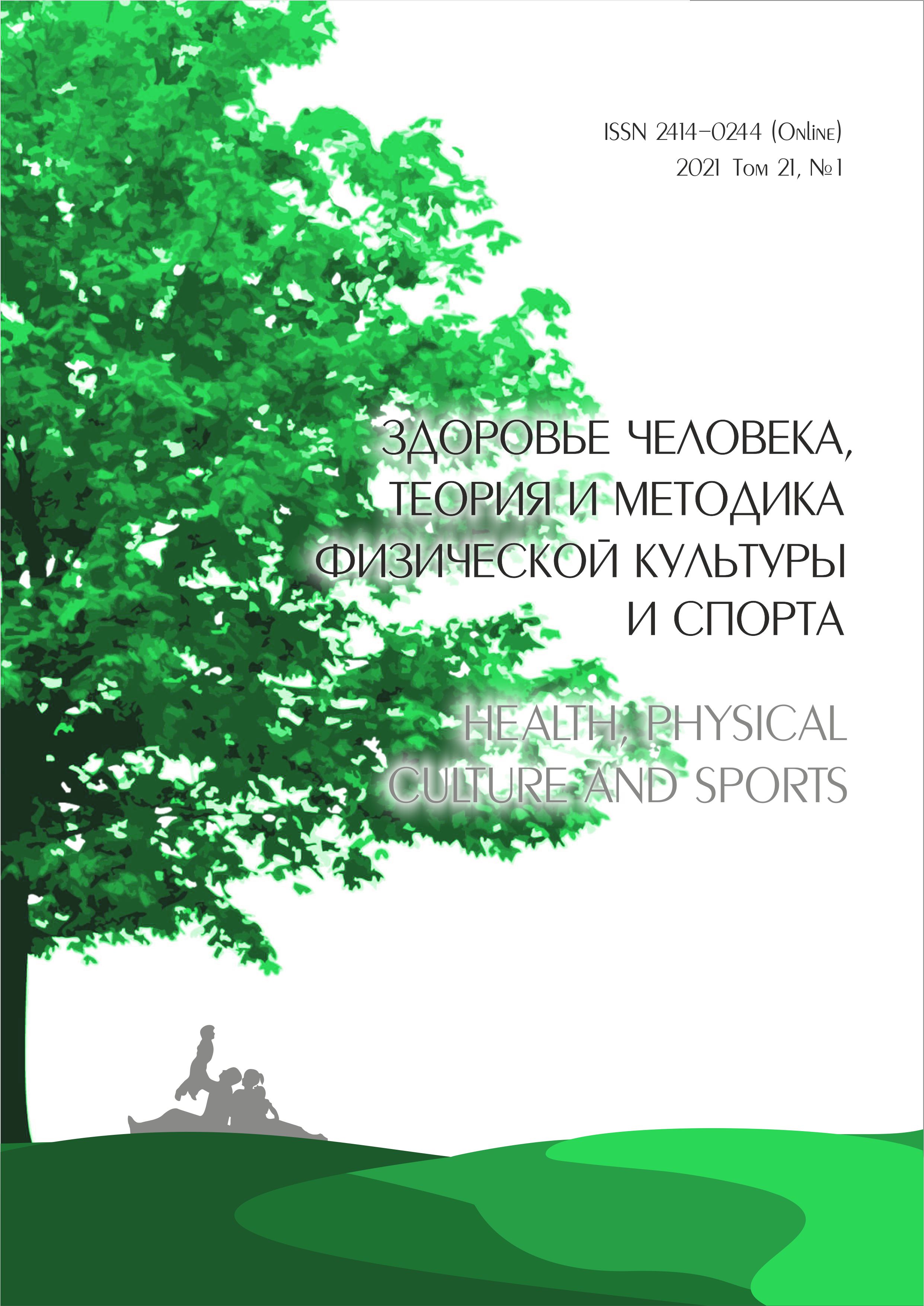RESEARCH OF SPORTS ACTIVITY MOTIVATION AT DIFFERENT STAGES OF LONG-TERM TRAINING GIRLS IN THE FORM OF SPORT HANDFIGHT
Abstract
Given the increased competition in the women’s discipline «hand-to-hand fighting»today the scientific and theoretical substantiation of effective approaches to training athletes atvarious stages of sports training. because of variety of techniques from different types of martialarts, certain rigidity competitive fights, the training process in hand-to-hand combat has a numberof features, and preparation for specific competitive activity requires athletes of a high levelof psychological stability, physical preparedness and technical and tactical skill. It is important thatwhen implementing long-term training of female athletes, none of these aspects can be consideredin isolation, since technical solutions are closely interconnected with physical ones, mentaland tactical abilities of an athlete.
stages is one of the priorities. This is connected in primarily due to the fact that motivation is a key factor indetermining the athlete’s ability for professional growth, high performance and efficiency, and underestimationof the role of motivational factors often becomes an obstacle in realizing the athlete’s potential.The lack of scientific and theoretical research on the study of the motives of sports activities at thestages of many years of training girls in the sport of hand-to-hand combat determined the relevanceof research activities in this area.Within the framework of the study, the focus of female athletes on achieving success and avoiding failures,analyzed the dynamics of motivation sports activity at the stages of long-term training, the most significantmotives for each stage, the level of stability of the girls’ interest was determined to training activities.The results obtained will form the basis of the scientific and theoretical justification many years of trainingin the female discipline of hand-to-hand combat, in particular, will allow correctly place methodological andpsychological accents in the development effective methodology for their long-term training.
Downloads
References
Бабушкин Г.Д. Психология физической культуры и спорта : учебник для высших физкультурных учебных заведений. Омск : СибГУФК, 2007. 270 с
Бабушкин Е.Г. Формирование спортивной мотивации у боксеров на этапе начальной подготовки : автореф. … канд. пед. наук. Омск, 2000
Бондаренко Н.А. Влияние полоролевых стереотипов на мотивацию и самоотношение спортсменов : автореф. дис. … канд. пед. наук. Краснодар, 2006
Ворожейкин А.В., Тюпа П.И., Волков А.П. Этап начальной спортивной подготовки девушек, специализирующихся в виде спорта рукопашный бой в контексте требований федерального стандарта // Здоровье человека, теория и методика физической культуры и спорта. 2020. № 1 (17). С. 74–80
Ганоль А.С. Гендерные особенности и структура мотивации выбора экстремальных видов спорта : автореф. дис. … канд. пед. наук. СПб., 2011
Гуренко Ю.В. Формирование мотивов учебной деятельности у подростков в учреждениях дополнительного образования в сфере физической культуры : автореф. … канд. пед. наук. Калининград, 2018
Ильина Н.Л. Динамика мотивации на протяжении спортивной карьеры : автореф. дис. … канд. пед. наук. СПб., 1998
Немов Р.С. Психология : словарь-справочник: в 2 ч. М. : ВЛАДОС-ПРЕСС, 2003. Ч 1. 304 с
Пилоя Р.А. Мотивация спортивной деятельности. М. : ФиС, 1984. 216 с
Шадриков В.Д. Проблема системогенеза профессиональной деятельности : репринт текста издания 1982 г. М. : Логос, 2007. 192 с
Pfister G. Gender, sport and health — changing discourses II 2004 Pre-Olympic Congress. Volume 1 Thessaloniki: 2004. Pp. 124–125
REFERENCES
Babushkin E.G. (2000). Formation of sports motivation among boxers at the stage of initial training: author. ... Cand. ped. sciences. Omsk
Babushkin G.D. (2007). Psychology of physical culture and sports: a textbook for higher physical education institutions. Omsk: SibGUFK
Bondarenko N.A. (2006). Influence of gender-role stereotypes on motivation and self-attitude of athletes: author. dis. ... Cand. ped. sciences. Krasnodar
Ganol A.S. (2011). Gender characteristics and structure of motivation for choosing extreme sports: author. dis. ... Cand. ped. sciences. SPb
Gurenko Yu.V. (2018). Formation of motives of educational activity among adolescents in institutions of additional education in the field of physical culture: author. ... Cand. ped. sciences. Kaliningrad
Ilyina N.L. (1998). Dynamics of motivation throughout a sports career: author. dis. ... Cand. Ped sciences. SPb
Nemov R.S. (2003). Psychology: dictionary-reference book: in 2 hours Moscow: VLADOS-PRESS, Part 1
Pfister G. (2004). Gender, sport and health-changing discourses II 2004 Pre-Olympic Congress Volume 1. Thessaloniki: pp. 124–125
Piloya R.A. (1984). Motivation for sports activities. Moscow: FiS
Shadrikov V.D. (2007). The problem of the system genesis of professional activity: a reprint of the text of the 1982 edition. Moscow: Logos
Vorozheikin A.V., Tyupa P.I., Volkov A.P. (2020). The stage of initial sports training of girls specializing in the sport of hand-to-hand combat in the context of the requirements of the federal standard . Health, Physical Culture and Sports, 1 (17), 74–80
Copyright (c) 2021 Health, physical culture and sports

This work is licensed under a Creative Commons Attribution-NonCommercial 4.0 International License.
An author should not normally publish manuscripts describing essentially the same research in multiple journals or publication venues. Such redundant publication is generally considered to constitute unethical publishing behavior, and if discovered may result in a manuscript under consideration being rejected, or a published article being retracted.
Authors of manuscripts reporting on original research should present an accurate account of the work performed, accompanied by an objective discussion of its significance. Underlying data should be represented accurately in the manuscript. The manuscript should contain sufficient detail and references to permit others to replicate the work. The fabrication of results and the making of fraudulent or knowingly inaccurate statements constitute unethical behavior and may be cause for rejection or retraction of a manuscript or published article.





